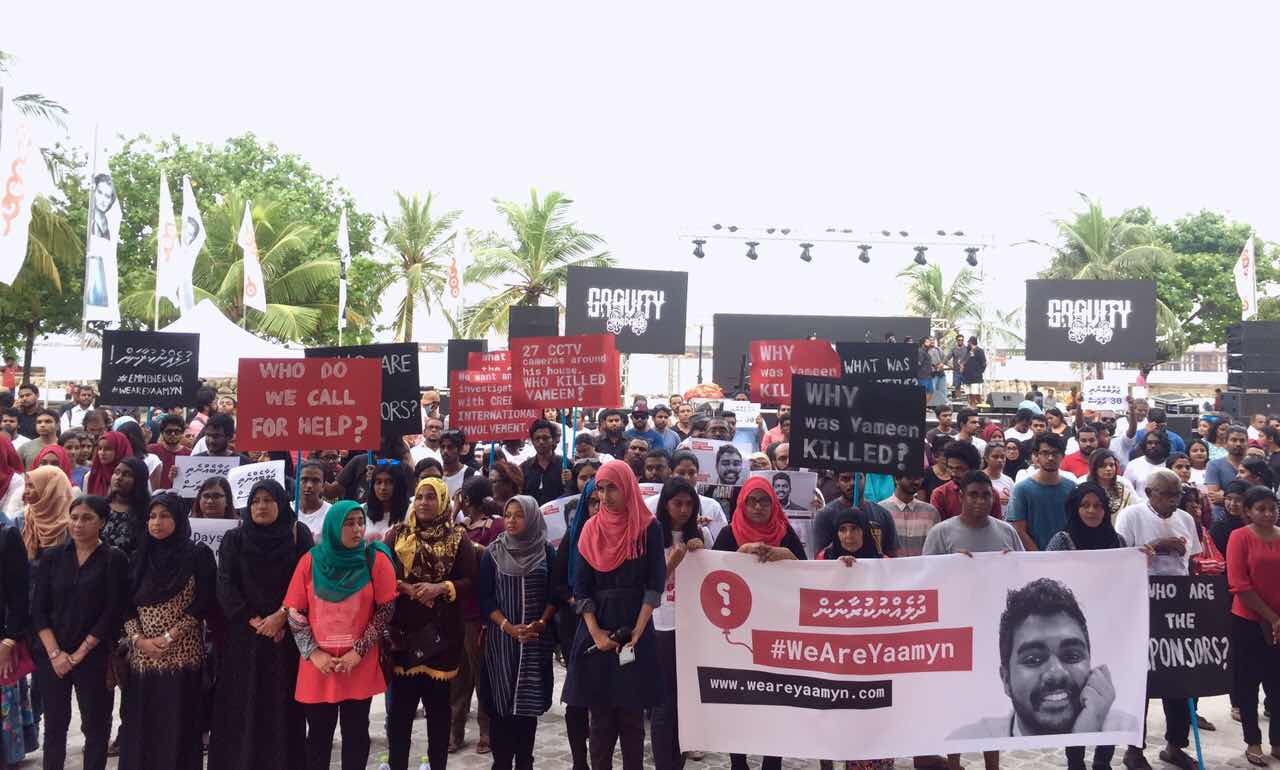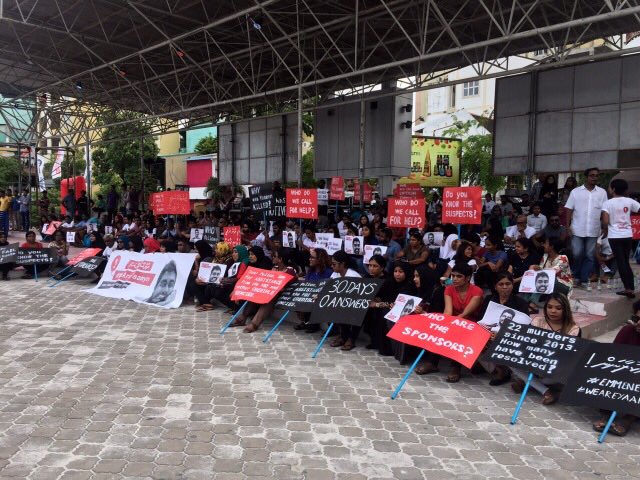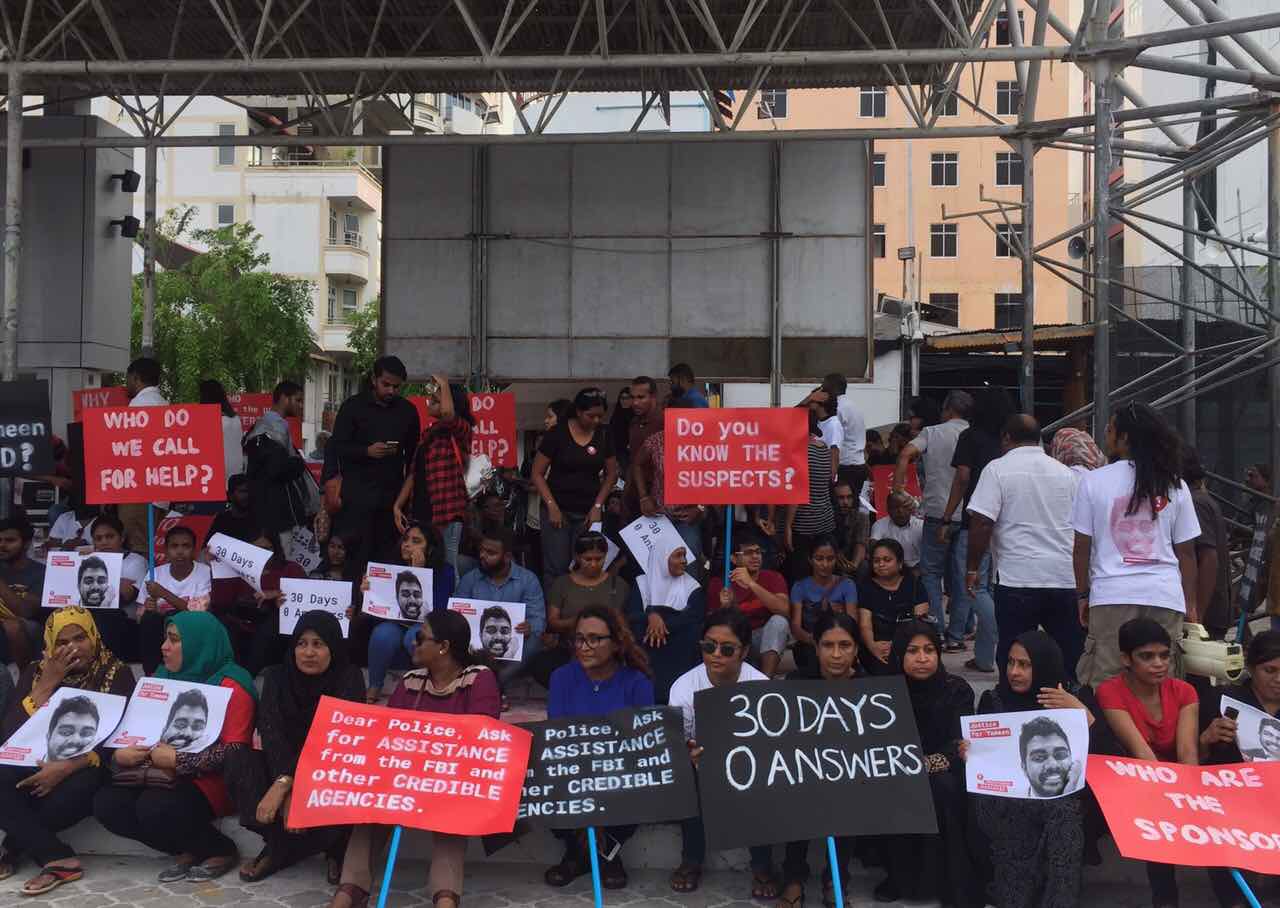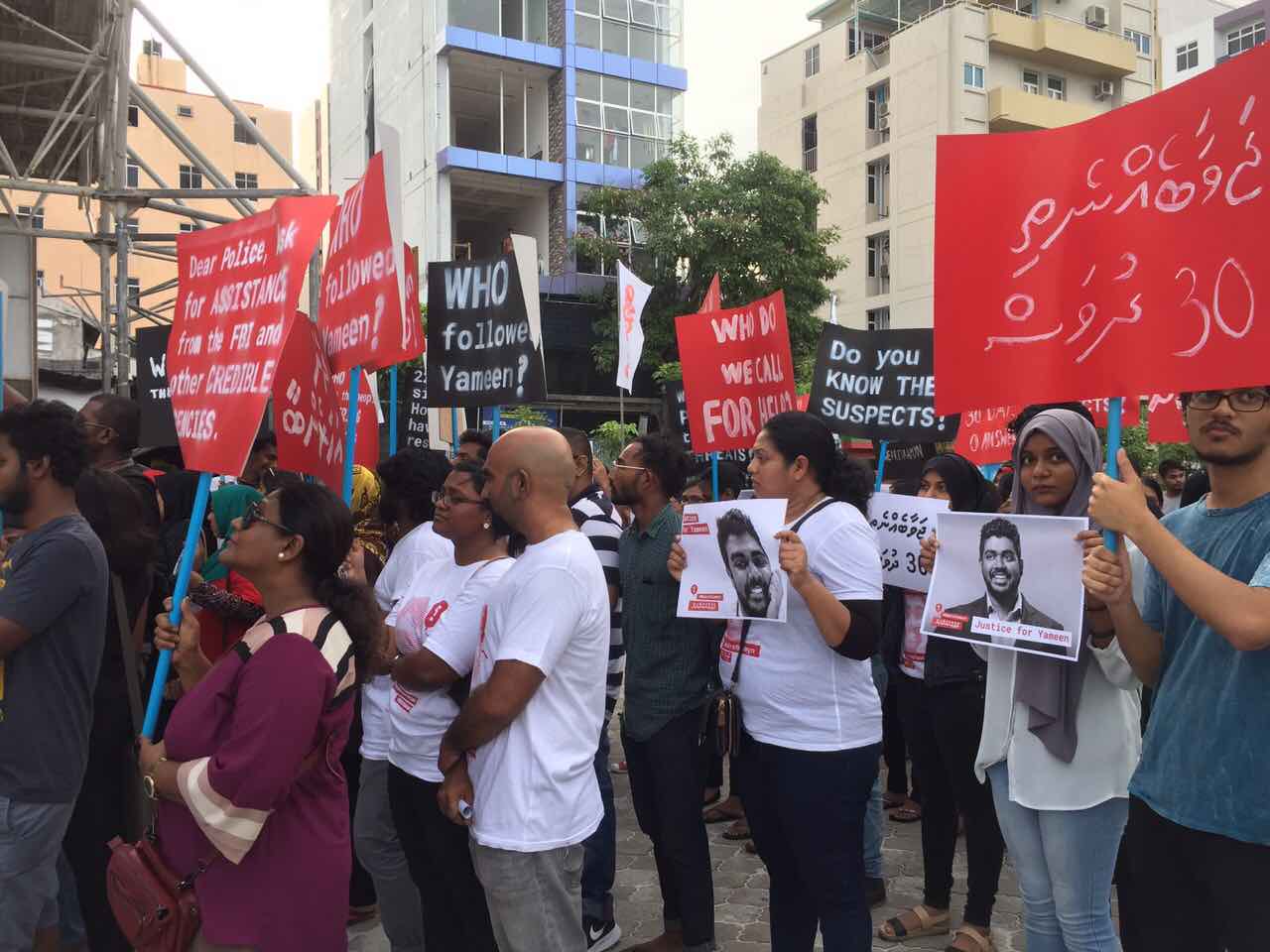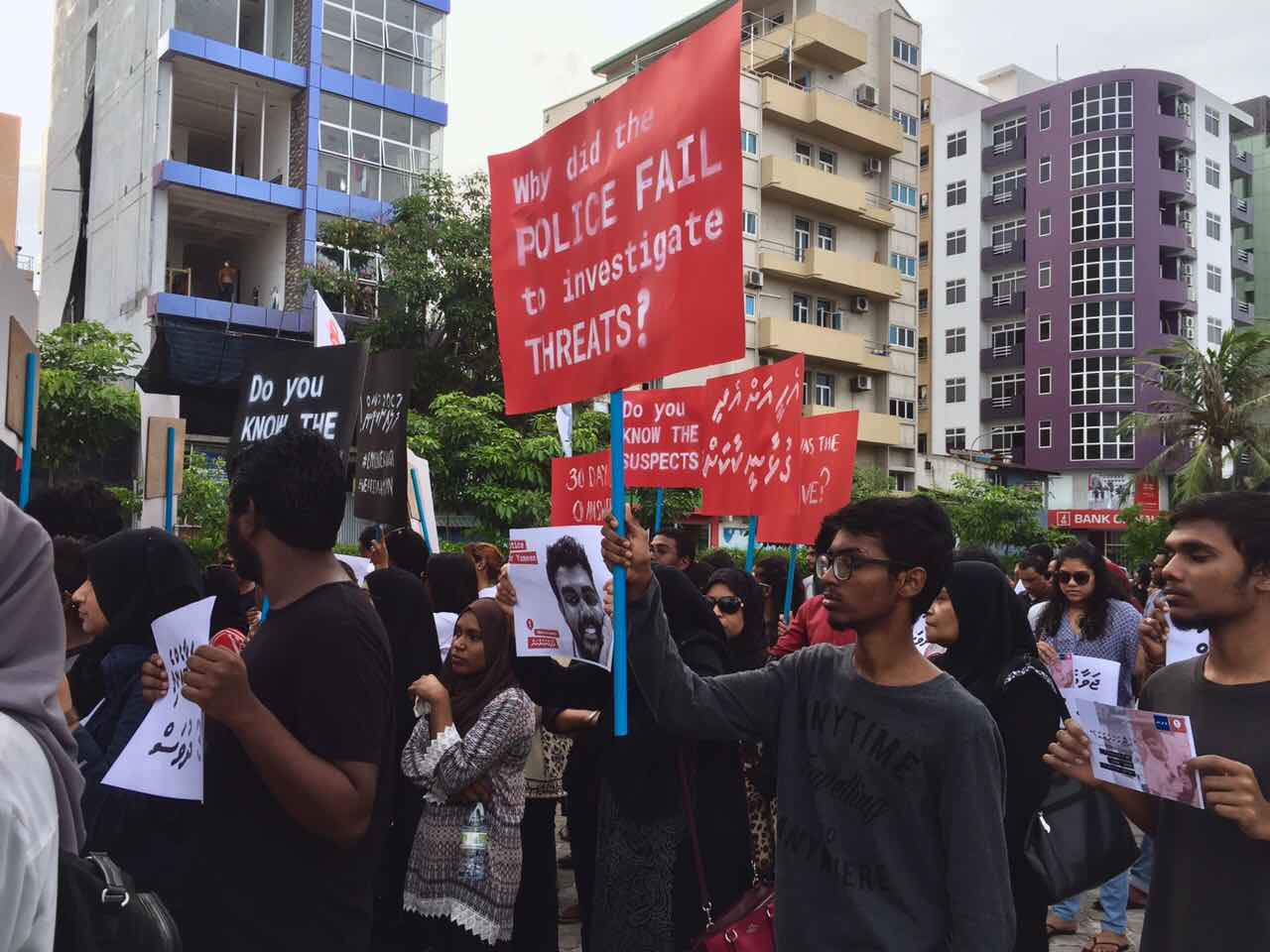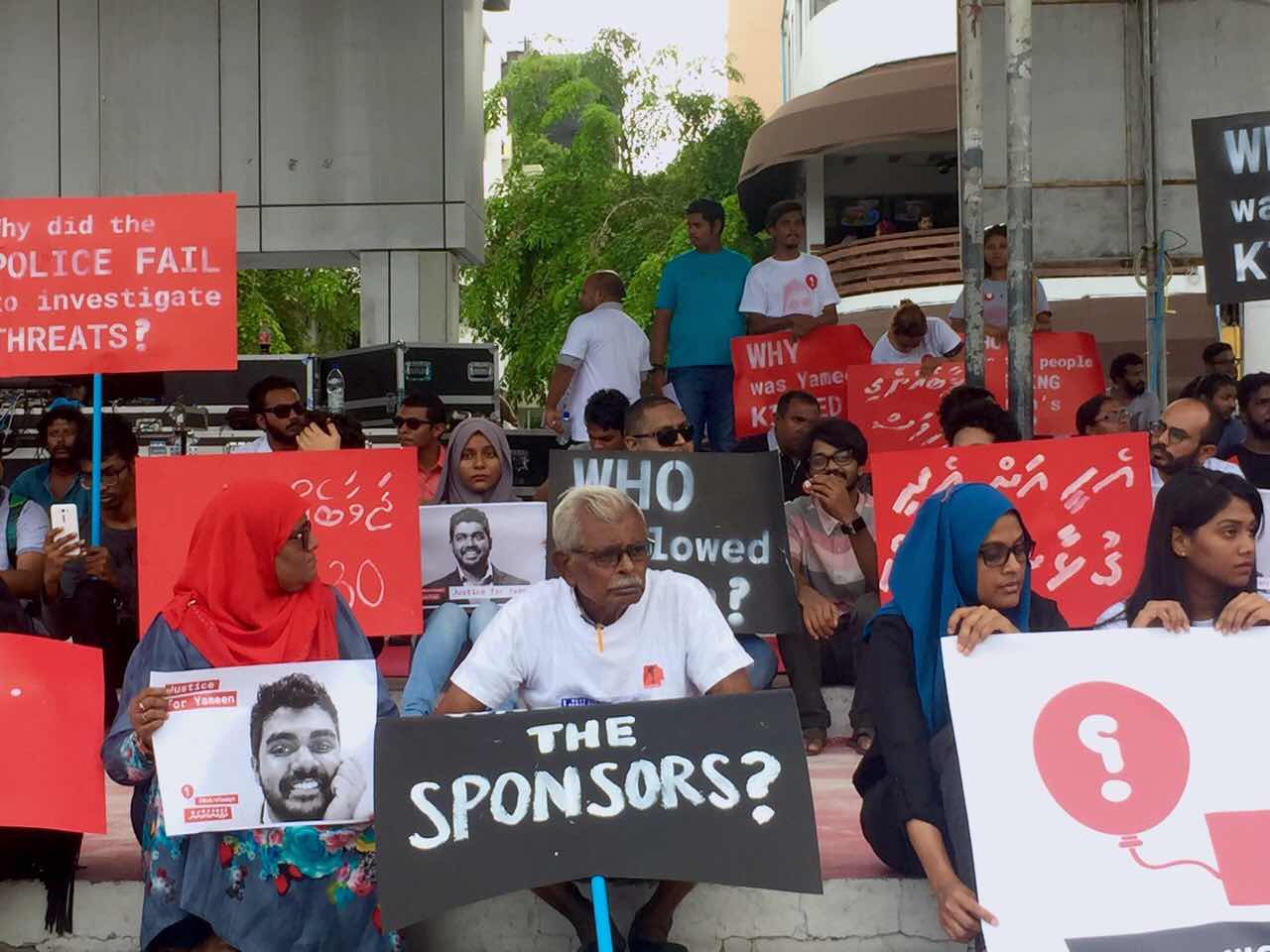The police blocked a march planned by Yameen Rasheed’s family and friends Tuesday afternoon to mark one month after his brutal murder.
About 150 people gathered at the artificial beach in Malé with banners and placards when a police officer warned that the march will be stopped if they move to the street.
In August last year, the ruling party-dominated parliament restricted protests and gatherings in the capital to areas designated by the home ministry, which later picked the carnival area in Malé’s eastern waterfront.
The constitution guarantees the right to protest without prior notice but the Freedom of Assembly Act was changed to require written permission from the police to gather in other areas.
Yameen’s family and friends had planned to march down the length of Majeedhee Magu, the capital’s main thoroughfare. But the police officer told the organisers to stay in the artificial beach as they did not seek permission for the march.
The organisers decided to stage a sit-in protest to avoid a confrontation with the police. Some participants made speeches, recited poems, and led chants calling for justice.
The gathering ended with a prayer at 5:30 pm.
“Dear police, ask for assistance from the FBI and other credible agencies”, “Why did the police fail to investigate death threats?”, “Who followed Yameen?”, “Who are the sponsors?”, read some of the placards.
Three traffic police officers and three Specialist Operations riot police officers stood on the pavement across the street until the event ended.
The mother and father of abducted Maldives Independent journalist Ahmed Rilwan attended yesterday’s gathering in solidarity with Yameen’s family.
Yameen, one of Rilwan’s closest friends, was the coordinator of the #FindMoyameeha campaign launched after the journalist was abducted in August 2014.
Despite the arrest of six suspects – including two men believed to have committed the murder – Yameen’s family have questioned the ability of the police to conduct an impartial and credible investigation, citing the failure to investigate death threats or arrest suspects in Rilwan’s abduction and the near-fatal attack on blogger Hilath Rasheed.
Like Yameen, both Rilwan and Hilath were prominent liberal voices against radicalisation and extremism.
The police claim to have identified and arrested the two suspects caught on security camera footage, but have yet to forward cases for prosecution more than a month after the 29-year-old was found with 35 stab wounds in the stairwell of his apartment building.
Yameen’s family have also sued the police over the failure to protect him despite numerous death threats reported since 2014. Earlier this month, the family petitioned the UN human rights chief to press the Maldivian authorities to allow an independent investigation led by an international group.
During the weekend, Yameen’s father, Hussain Rasheed, 54, travelled to New Delhi, India to brief the press and reiterate the family’s call for foreign involvement in the murder probe.
“In the absence of international pressure, I am afraid this case will go the same way of so many others killed for their beliefs in the Maldives,” he told The Indian Express.
“I base my opinion on what I have seen of the attitude of government officials, police and even the president towards us. No one has offered us any sympathy, a word of support, or even an appointment to inform us of developments in the case.”
Rasheed appealed for help from the Indian government. “It is in your vicinity that radicalisation is happening. We need your help. Help us ensure an impartial investigation into my son’s case,” he was quoted as saying by the Hindustan Times.
“The gangsters did not have any enmity with my son. They probably got a contract to kill Yameen from those who had been threatening him for years,” he told The Hindu.
